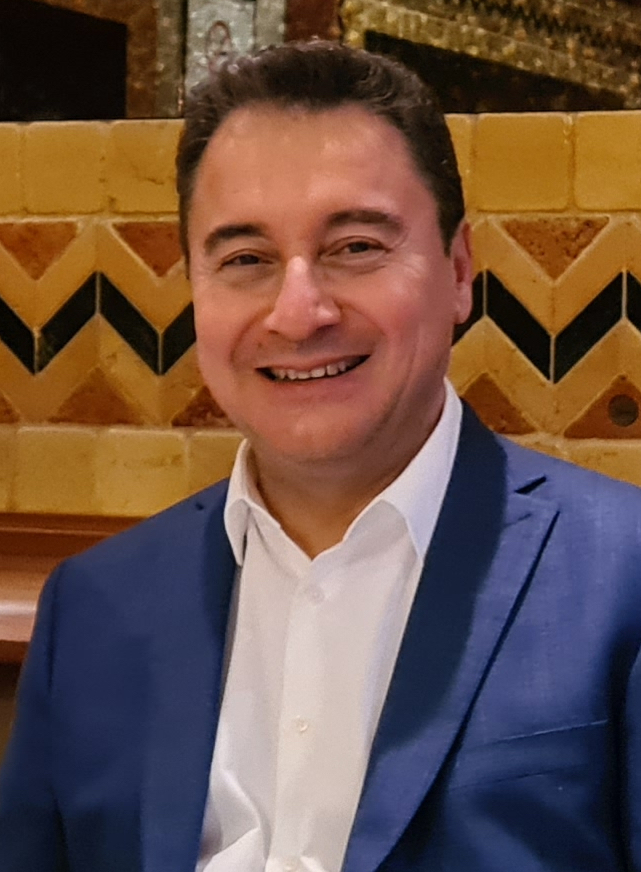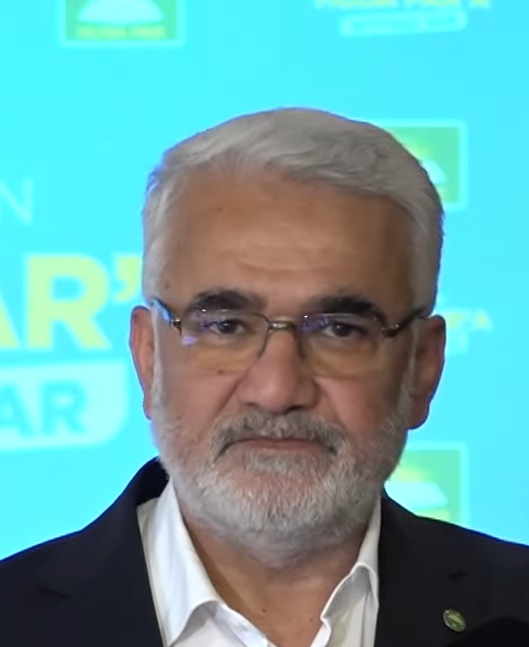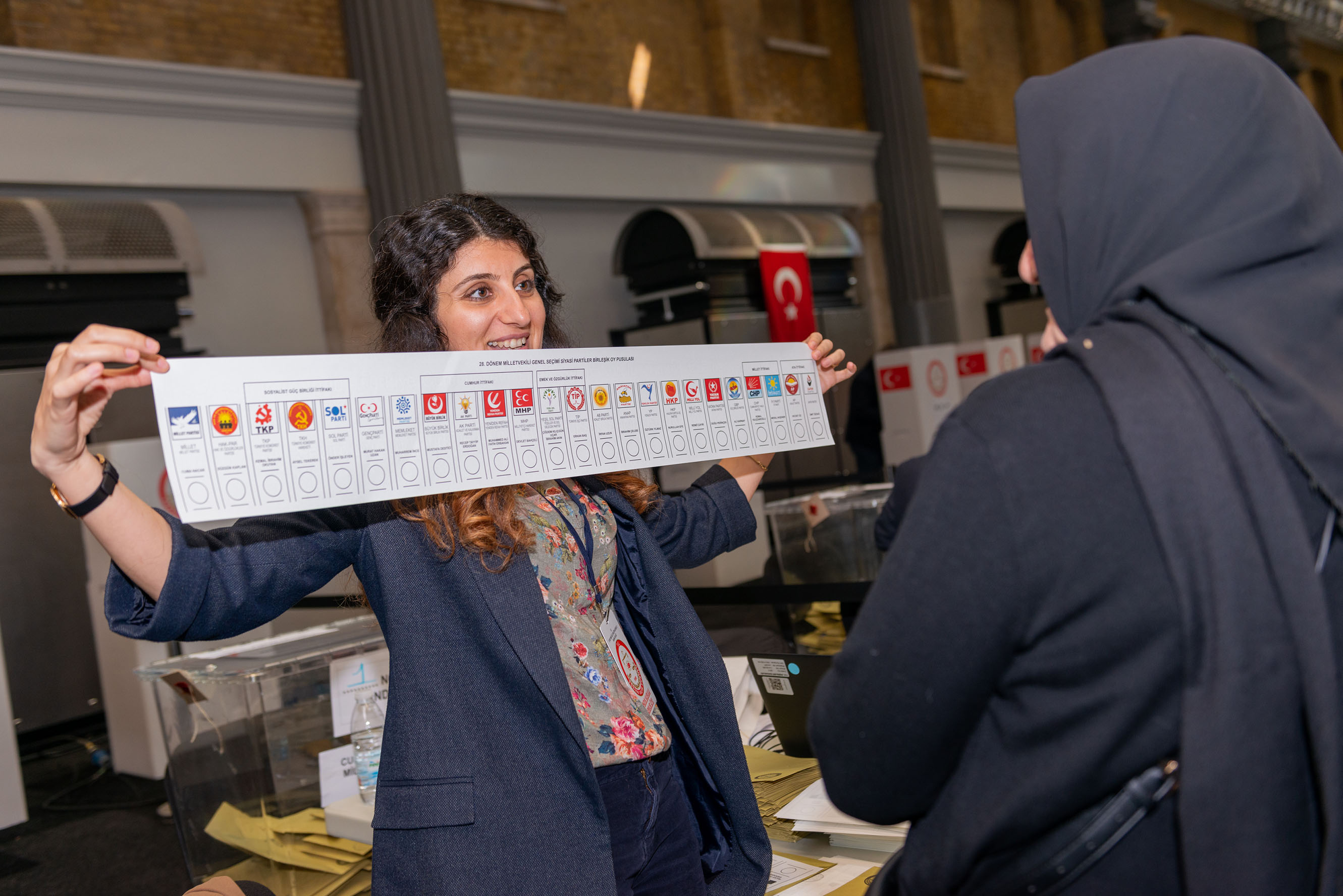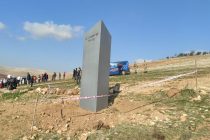Two big elections are taking place in Türkiye on Sunday 14 May 2023: the Presidential and Parliamentary elections. While most media attention has been dominated on Erdoğan and whether, after 20 years in power, he can win again in the Presidential elections, the makeup of the Grand Assembly also has an important bearing on Turkish democracy.
Official figures show some 64.1 million people are eligible to vote in Sunday’s elections. They will not only be voting for their president of choice, but who takes one of the 600 seats available in the Grand Assembly.
The 600 seats are split across 87 districts in Turkiye and any party requires at least 7% of the national vote to enter Parliament. Some smaller parties have entered into a larger political alliance to help them achieve this – if the bloc as a whole secures 7% then each of the parties involved will have some MPs.
There are a whopping 26 parties on the Parliamentary ballots. There are four candidates from the far-right Islamist nationalist Hüda Par and three from centre left DSP who have entered the contest through the ruling Just and Development Party (AKP) lists. Neither of these two small parties are formally part of the People’s Alliance itself, but they are publicly supporting Erdoğan.
There are a total of 76 candidates from DEVA, Gelecek, Saadet, Demokrat, and İYİ Party, which are entering through main opposition Republican People’s Party (CHP) lists.
The pro-Kurdish HDP and Labour Party will be entering through the newly formed Green Left Party’s (YSP) lists.
The unlikely political alliances for Sunday in order to increase the chances of electoral success has not been well received in many quarters.
For example, CHP accepting the candidacy of Sadullah Ergin, now of DEVA but formerly an AKP member and Justice Minister during the controversial Ergenekon and Balyoz Trials, where fake evidence was used to prosecute and jail some of Turkiye’s top military personnel, has caused a backlash and certainly some loss of votes from traditional CHP voters.
Rengin Gürdeniz made waves on social media after tweeting harsh criticism against CHP’s decision to accept Sadullah Ergin as a candidate. Gürdeniz is the wife of Admiral Cem Gürdeniz, who created Turkiye’s important Bluehomeland Doctrine. Her husband was one of those who was tried and sentenced to 18 years during the Balyoz Trials. He was later acquitted of all charges.
“Having grown up in a CHP family and voting for CHP since the age of 18, I am announcing that I will not vote for CHP, no one can make me vote for people who were our executioners at the time……..,” tweeted Rengin Gürdeniz.
Others are also concerned that those who could champion major changes to Turkiye’s identity and territory could slip into Parliament through the backdoor through these alliances.
The first four articles of Turkiye’s Constitution set out the core principles that make-up the Republic of Turkiye as a secular democracy and unitary state.

Article 3 states that, “The State of Türkiye, with its territory and nation, is an indivisible whole. Its language is Turkish…”, whilst Article 4 forbids any attempt to modify the first three articles.
Yet, political figures like DEVA leader Ali Babacan, and members of pro-Kurdish parties HDP and Hüda Par are all on record repeatedly demanding key changes to these fundamental clauses to change the country’s constitutional make-up.
Former AKP Economy Minister Babacan (2002-2011) is also an unpopular inclusion in CHP lists because he presided over the privatisation of many state-owned institutions, including permitting the sale of Türk Telekom to foreign buyers for a paltry $6.5 billions.
Another controversial aspect of Babacan’s inclusion in the Nation Alliance bloc is that he voted in favour of abolishing the parliamentary system and for Turkiye to adopt the presidential system, which gave unprecedented powers to the president, with Erdoğan reaping the benefits following the 2017 Turkish Constitutional Referendum. The Nation Alliance has promised to restore the parliamentary system if it wins on Sunday.
Controversy also plagues the inclusion of Gelecek Party leader and ex-AKP Foreign and Prime Minister Ahmet Davutoğlu. As Minister of Foreign Affairs from 2009-2014, he is widely regarded by many as the man responsible for Ankara’s involvement in the Syrian civil war that has led to millions of Syrian refugees being displaced, with around 4 million settling in Türkiye this past decade. The Nation Alliance has pledged to send refugees back to Syria if they triumph in the elections.
The acceptance of these three former AKP members as part of the Nation Alliance have pushed some patriotic Turkish voters to abandon CHP and IYI party and Kılıçdaroğlu’s presidential candidacy and instead support Muharrem İnce and Sinan Oğan in the Presidential race.
Smaller patriotic parties standing for Parliament may also benefit by voters turned off by the two big alliances’ association with political factions in Turkiye that have links to terror.
The HDP is regularly called out for its links to terror group the PKK, which it has repeatedly failed to denounce. Similarly, Hüda Par (Free Cause Party) have refused to distance themselves from another terrorist organisation, Hezbollah.

Hüda Par’s controversial leader Zekeriya Yapıcıoğlu had expressed his unwillingness to stand underneath the Turkish flag in recent interviews, stating that it should be renamed the “flag of Türkiye”. He and his party members see themselves as “Muslim first, Kurdish second”.
On May 2, it was announced in the Turkish Republic’s Official Gazette that Mehmet Emin Alpsoy, head of Turkiye’s Hezbollah terror group, was pardoned by President Erdoğan on the grounds of “old age”. Emin Alpsoy was in jail for torturing and murdering three people in the 1990s.
No doubt some supporters of the far-right National Movement Party (MHP), led by Devlet Bahçeli, will be unwilling to back the People’s Alliance with Erdoğan for this reason.
Another radical party in the Erdoğan alliance that is extremely influential among conservative religious voters is the Islamist Yeniden Refah Party (New Welfare Party). The leader is Fatih Erbakan, the son of Türkiye’s 23rd Prime Minister Necmettin Erbakan.
YRP has put forward a host of very extreme policies such as, closing all LGBTQ associations and preventing them from making propaganda in public, and “protecting” Turkish youth from “disasters such as deism, atheism and homosexuality”. They also want to change the National Education curriculum to raise generations believing in the Islamic Akhirah (ever-lasting life after death and the need to live one’s live on earth accordingly).
With people looking to the presidential candidates for the big issues, such as the state of the economy, democracy, and the recent devastating earthquake, who the electorate give their vote in the parliamentary elections may swing on far finer details.




